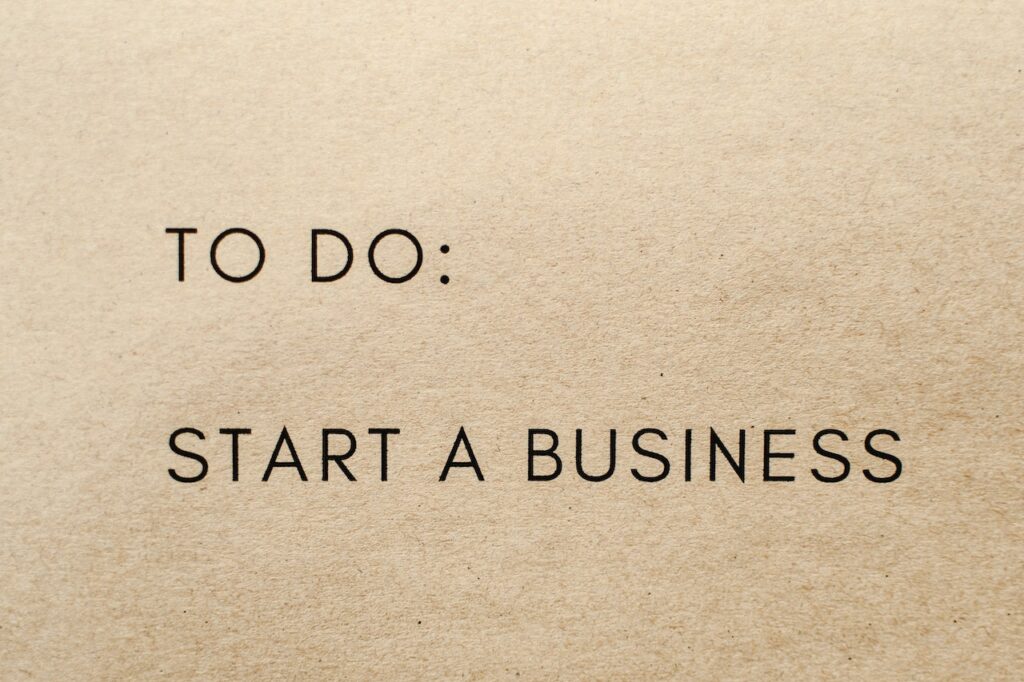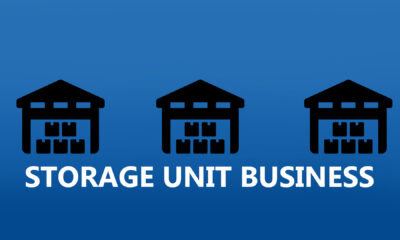Business
Should You Start A Business During A Recession
Let’s find out why business owners who believe in their idea should not see a recession negatively.
Published
3 years agoon

Tough periods include recessions and even unstable markets, like the one we’re in right now as a result of COVID-19. Businesses might become insecure due to a great level of uncertainty, employment losses, and a direct impact on financial flows. It does not have to be wholly negative, though.
Today’s firms are looking into ways to alter their business models, review their budgets, and make new projections in order to lower their burn rate and extend their financial runway.
However, for individuals wishing to launch a business, now may be one of the ideal periods to do so. They are thriving and surviving.
Starting a firm during a recession may allow you to take advantage of a smaller economy and avoid many of the problems facing existing enterprises by utilizing a lean planning system. Here are eight ideas to consider to successfully launch your business during a recession to get you going.
Top 5 Reasons for Launching a Business During a Recession

Identify Solutions To Fresh Issues
Economic hardship creates new issues. These issues are the result of people’s ongoing needs or discomfort, which frequently don’t have an immediate fix. To help explain why customers will move to you, be aware of how consumers already manage this issue and who offers the best current answer.
Concentrate on presenting your company, product, or service as that innovative and superior answer. Show how your solution is more immediate, dependable, economical, etc., even if there are alternatives.
In the instance of COVID-19, starting with remote, delivery, or as-a-service variations of goods or services that haven’t successfully pivoted may be the ideal method to approach a new business idea.
Better, Quicker, And Less Expensive
There’s a strong chance that you’re starting your business from your home, have few staff, and have very little overhead to manage right now.
This combination puts you in a fantastic position to offer a cheap solution and win clients. As a result of the need to cut expenses during a recession, both firms and consumers may be open to your solution.
There’s a significant possibility you’ll win them over as long-term clients if you can save them money while also providing better service or a quicker turnaround. They might support your company if you build a relationship with them now and point to you as one of the factors that allowed them to endure the crisis.
You can always look to raise pricing or introduce new services that these clients will be more prepared to accept if the economy improves because of how you assisted them in the past.
Less Competition

A strong economy draws more rivalry. While more and more entrepreneurs are taking chances to launch or grow their businesses, established businesses are doing exceptionally well. In a crisis, everything seems to vanish, yet there is actually a place for those who are willing to take a chance.
One of the main advantages of launching a business during a recession is the fact that there will inevitably be less competition entering the market.
You can concentrate on competing with established rivals without having to worry about new competitors taking advantage of the same position as you.
Nevertheless, you will eventually need to take this into account and exploit this advantage to position your company to face more competition as the market strengthens.
Cheap Materials And Supplies
A recession is likely to result in businesses disposing of goods, assets, or equipment for a significantly lower price, continuing the pattern of things being cheaper.
This can reduce overhead costs, such as rental and software, as well as initial one-time purchases, such as laptops, scanners, etc., while you’re just getting started.
If you’re establishing a business from home, this will probably just have an impact on your initial startup costs, but it might still be helpful if high overhead costs have previously worried you or even stopped you from starting.
The greatest thing you can do is find suppliers, business partners, and merchants who need to shift inventory or sign up new customers at a discount.
By doing this, you might be able to negotiate long-term payment arrangements that will stand even after the economy starts to improve while also potentially saving money upfront.
Better Credit Alternatives

It’s likely that banks and credit card providers are currently lowering interest rates to help promote spending.
For those who are just establishing a business, this is fantastic news because there are now fewer penalties and possibly higher credit limits associated with loans and credit cards.
Bear in mind that most lenders will require you to submit a comprehensive business plan, complete with financial information and projections if you decide to apply for a loan.
This not only supports your application but also demonstrates your long-term perspective and ability to manage the assets well.
Final Note
As you can clearly see, there are lots of advantages to beginning a business amid a downturn, but it doesn’t mean it will be simple to get off the ground.
To ensure that your firm is viable, you still need to create a business strategy, test your idea, and set up a financial plan.
Planning ahead and making sure you can take advantage of the advantages described in this article, rather than suffering from the challenges faced by established organizations, is especially crucial in an uncertain economic situation.
ALSO READ: Is It A Good Idea To Apply To Multiple Jobs At Once

Best Problem-Solving Strategies In Business

How to Start Affiliate Marketing Through Amazon

How to Plan A Wedding On A Budget

10 Reasons Why Budgeting Is Important






